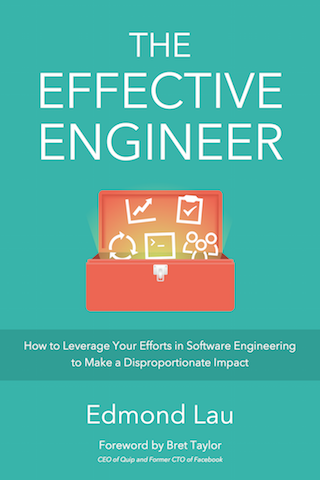The Trouble with Trying to Win at Everything

I like to argue.
In fact, I liked it so much that during my high school and college days, I competed on the debate team for over five years. On weekends, we’d travel to tournaments at nearby school campuses and debate other students on important social issues.
Is human genetic engineering morally justified? Is it moral for the United States to use economic sanctions to achieve foreign policy goals? Do colleges and universities have a moral obligation to prohibit hate speech on campuses? Should violent juvenile offenders be treated as adults under the criminal justice system?
Debate was the single, most valuable activity I did during high school. It taught me how to clearly articulate my thoughts, how to speak in public, how to organize my writing, and how to use logic and rhetoric to persuade my audience.
But debate also taught me a bad habit — one that ironically made it more difficult for me to communicate effectively at home and at work — that took me years to unlearn.
Debate taught me to argue every point and strive to win every argument — it was difficult to tell what would ultimately sway a judge. It taught me how to keep arguing even if I didn’t believe my position — because we alternated sides between competition rounds, our personal stances were irrelevant, and we had to get great at arguing both pros and cons. And it taught me to never admit that my opponent was right — you don’t give up partway through a debate round.
As it turns out, for many things we care about in life and work, winning isn’t always the goal. In fact, if you try to win everything, you’ll almost certainly start losing on the goals that matter.
The Trouble with Winning Too Much
The most common behavioral trait that holds leaders back from further success is their desire to win too much.
That’s what Marshall Goldsmith learned after coaching over 150 major CEOs and management teams — many of them at Fortune 500 companies — and shares in his book, What Got You Here Won’t Get You There.
The desire to win drives the urge to say “I told you so” when someone finally acknowledges that he made a wrong decision you had argued against. It leads us to put down or ignore our friends or teammates to feel superior. It incentivizes us to withhold information to give ourselves an edge over others. It holds us back from being accountable and admitting when we’re wrong.
It’s that desire to win — regardless of whether winning matters or not — that many initially successful people struggle with. Unfortunately, the interactions we have in many of our relationships — unlike debate rounds — are not transactional. With debate, you argue for 45 minutes, you win or lose, and then you move on. With our personal and work relationships, today’s interactions affect tomorrow’s.
My wife can tell you how it annoyed the heck out of her that I used to argue every point — even when I knew that I was wrong. For me, it was an intellectual exercise — it was fun, and I was good at it.
It took me years to mature enough to realize that this approach actually limited the openness of our conversations. By trying to win every argument, I increased the energy required for every conversation and reduced her incentive to share her thoughts — after all, why offer honest feedback if I’m just going to argue with it? And when communication breaks down, growth stalls.
This lesson applies to both personal and work relationships. Research on willpower suggests that we have a limited amount of energy per day. 1 To be effective, we should be spending that energy on our highest-leverage activities. Likewise, when it comes to our relationships, whether it’s with family, a friend, or a co-worker, there’s a limited amount of good will that we can expend. To be effective, we should use that good will on issues that actually matter.
The Key Question: What’s Your Goal?
Think about a conflict at work where you’re expending a non-trivial amount of energy convincing someone about the right way to do things.
Maybe you’re arguing about how a feature should be built or whether a system should be structured a certain way. Maybe you’re clashing with another engineer or product manager about who should be leading the team. Maybe your tendency is always to point out what’s wrong with your teammates’ proposals instead of highlighting what’s good.
Pause, and ask yourself, “What is my ultimate goal in this interaction?”
Is your goal to have something done your way or what you believe to be the right way, or is it actually something bigger? If your goal is to grow a successful team, for example, you might be better off actually encouraging your teammates to think and learn for themselves. If your goal is to build a product that people love, perhaps your energy would be better spent brainstorming and listening for better ideas rather than getting so attached to your own.
Whatever your goal is, it’s important to follow up with, “Does winning the interaction actually bring you any closer to your goal?”
When you stop and think, you’ll often discover that winning the argument won’t help you achieve your goal at all. When that’s the case, here are two powerful approaches I’ve found that can help diffuse tension and productively move conversations forward:
“I can see how you might think that…” Starting with this phrase requires actually listening and thinking about the problem from the other person’s point of view. It demonstrates that the conversation is not just about your own thoughts but theirs as well.
“You’re right.” Explicitly acknowledging when others are right shows them that they’re being heard and that you’re not just trying to win every argument. Particularly when emotions run high, this goes a long way toward building good will.
These two approaches have certainly helped my conversations at home — suppressing the desire to win when it’s not the goal has made me a better listener and resulted in healthier and more productive dialogue.
And they’ve also helped me grow as a leader at work as well. When people make claims that conflict with my own mental model, understanding what led them to their particular conclusion — rather than dismissing their ideas outright — often reveals issues I hadn’t considered. Similarly, by focusing on the promising aspects of a suggestion or proposal first — rather than trying to win by pointing out what’s wrong — the positive energy often leads to higher-quality ideas than what we’d have otherwise.
Relationships — whether they’re at work or at home — aren’t about winning and losing. Nor are they about being right and being wrong. They’re about figuring out what will work to achieve the goals you care about.
Relationships are built not won.
Thanks to Chen Xiao for providing feedback on this post.

“A comprehensive tour of our industry's collective wisdom written with clarity.”
— Jack Heart, Engineering Manager at Asana
“Edmond managed to distill his decade of engineering experience into crystal-clear best practices.”
— Daniel Peng, Senior Staff Engineer at Google

“A comprehensive tour of our industry's collective wisdom written with clarity.”
— Jack Heart, Engineering Manager at Asana
“Edmond managed to distill his decade of engineering experience into crystal-clear best practices.”
— Daniel Peng, Senior Staff Engineer at Google


















Leave a Comment